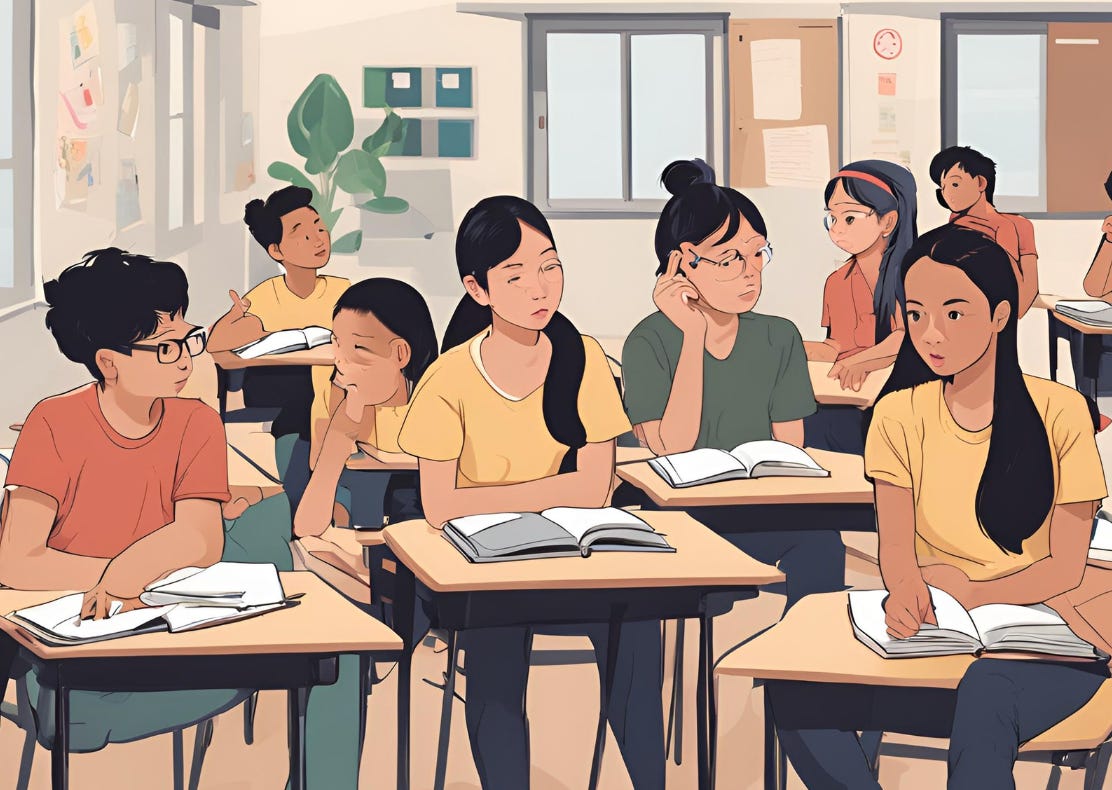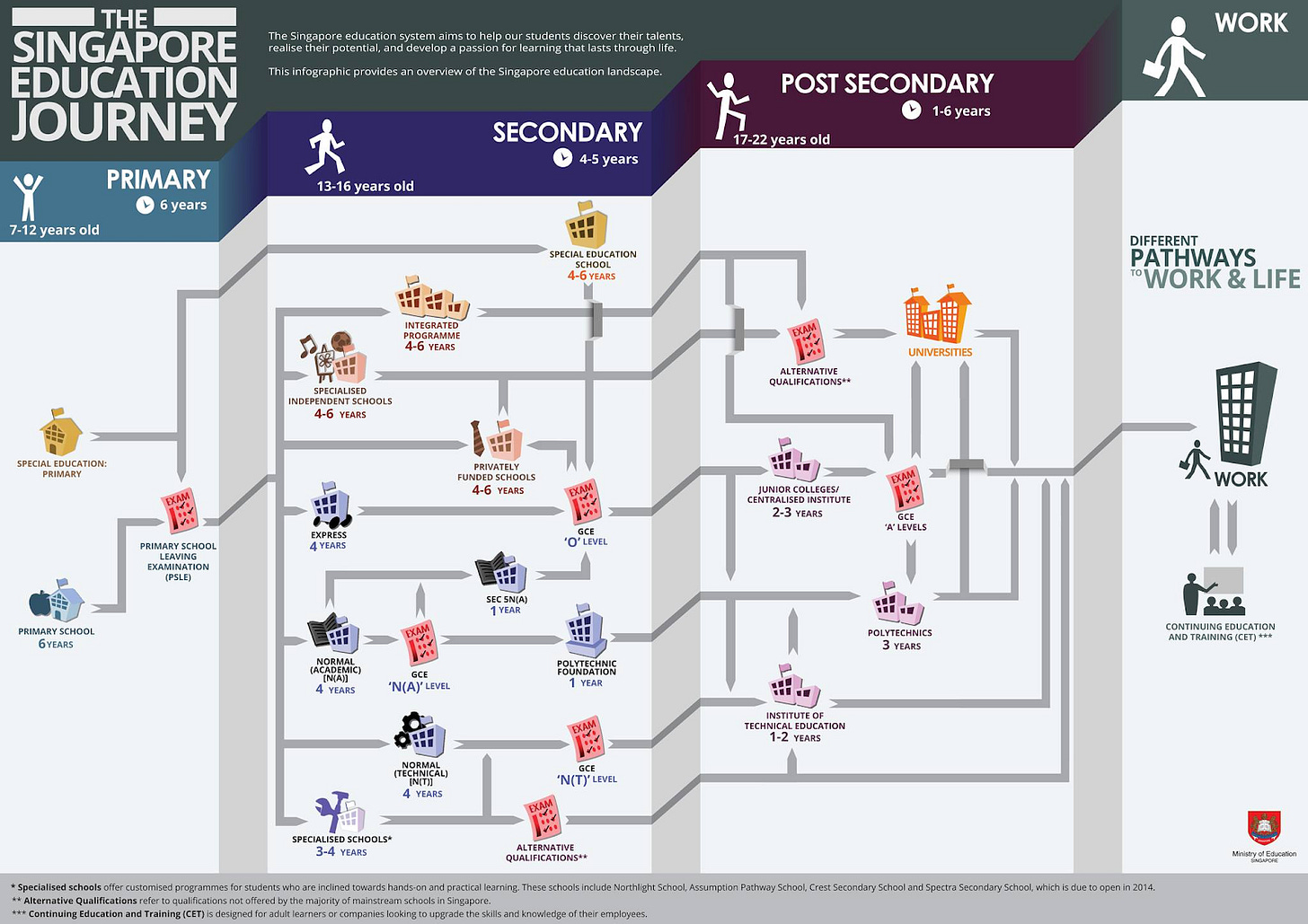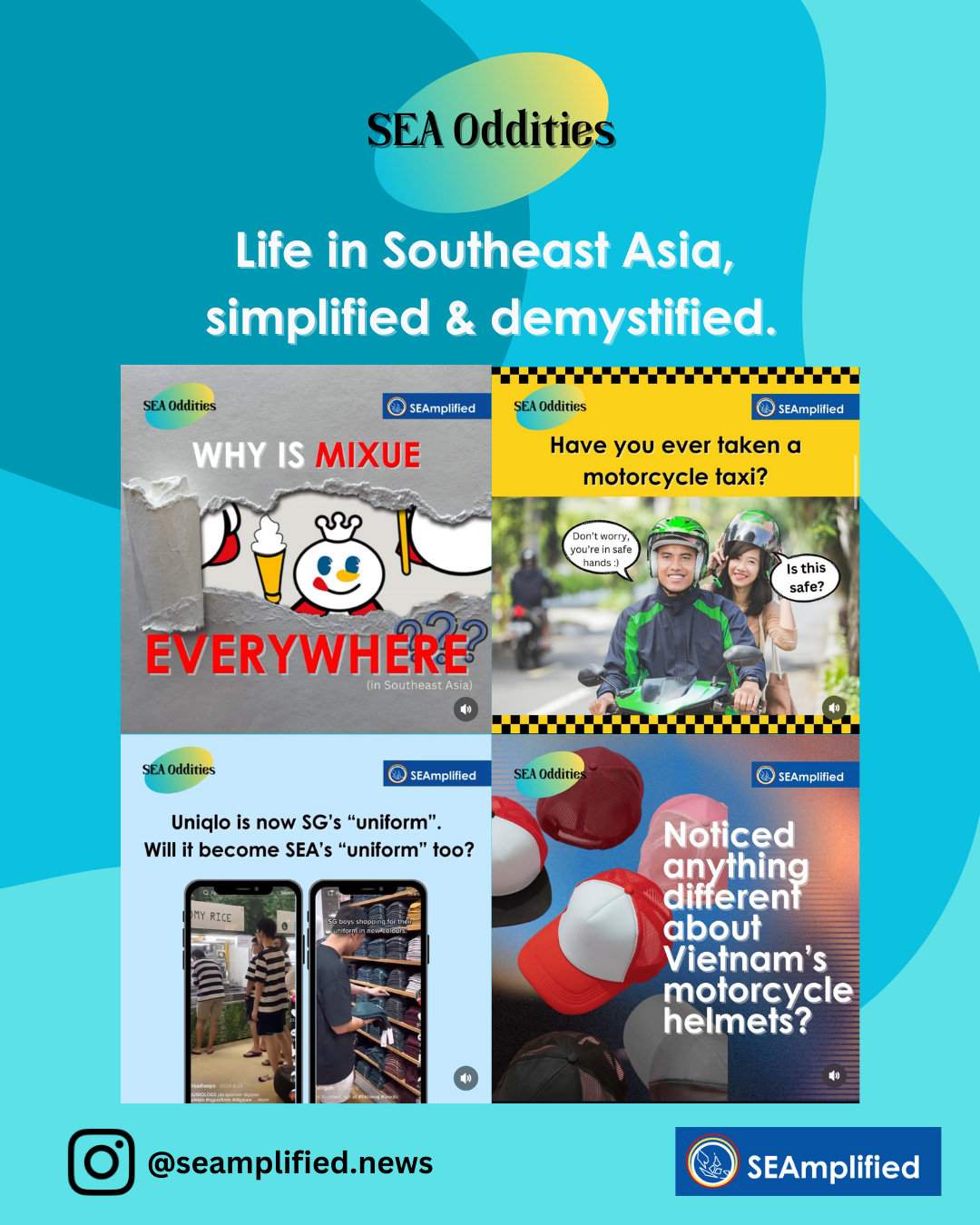#24: In pursuit of passion or pressure?
Should youths be told to find their passion early in life?
Welcome to this week’s edition of SEAmplified! Your latest insights on Southeast Asian youth in 7 minutes.
📌 This week in brief
📌 Redefining Work: Are we pressurizing ourselves to find our passion early?
📌 Have you ever wondered why life in Southeast Asia is so diverse and unique?💼 Redefining Work
Redefining Work examines how Southeast Asian youths are rethinking their careers and what it means to be a successful professional.Are we pressurizing ourselves to find our passion early?
“What’s your passion in life?”
This is a question we will all ponder at some point in our lives – often only when midway through our careers – but it seems that our youths are already wrestling with it.
In Singapore, secondary schools are encouraging students aged 13 to 17 to participate in after-school activities or discovery programs to explore and find their passion in life. There are even organizations like this one that are helping students discover their passions through real-world experiences such as short-term internships.
At the same time, increasing numbers of students are applying for early or aptitude-based admissions (ABA) to higher institutions in Singapore, which typically look at a student’s passions, interests, strengths, and talents.
For instance, Singapore’s Education Ministry said that 42% of 10,200 secondary or junior college students enrolled in polytechnics in 2023 via the early admissions exercise. Meanwhile, a university said that about 57% of its 6,400 freshmen in 2023 were offered places via ABA in 2023, up from 38% in 2019.
On the surface, it seems that passion discovery programs and considering one’s passion during school admissions is a step in the right direction.
But it’s not the case that everyone can find their passion at an early age.
On Reddit, it is not uncommon to stumble on students asking for advice because they have no idea what to do in life.
But why are youths feeling pressured to find their passion early? Is it even necessary?
Pressured by system, competition & comparison
Charu, 21, feels that the pressure begins when students get to choose their preferred subjects or courses while progressing in the Singapore education system.
For instance, students in their third year of secondary school can select their preferred subject combinations. Upon graduation, they get to choose their preferred course in higher institutions based on their results at the national examination.
“However, I also think that there’s some space to explore different paths. I’ve seen friends taking up an entirely different course in university, compared to what they did in polytechnic,” she said.
Charu also shared how passions can change.
The third-year political science undergraduate was initially interested in criminology, but she became more interested in politics after taking up a class in China Studies in junior college and watching commentaries by political experts.
However, not everyone would be willing to make the switch even if their interests have changed, because it would be a waste to do so after investing time and effort to chase their previous interest.
“I think most students feel pressurized to stick to what they’ve chosen so that they can minimize their schooling years because changing pathways can be quite time-consuming,” Charu added.
In Singapore, students have to spend at least 16 years progressing from primary school to university, depending on the academic path that they embark on. If students decide to change their academic path halfway, they may have to spend a few extra years to complete their education.
But the education system may not be the only factor involved.
Pearlyn, 23, a business administration undergraduate, feels that Singapore’s competitive environment and high cost of living are the main factors pressuring youths to find their passion early, even if they’re unclear about their path ahead.
“Before university, I have friends and seniors who forced themselves into a certain industry, even if they don’t fully understand what it’s about, because that’s where the money is,” she said.
Pearlyn then explained that youths desire to live a comfortable life in Singapore, which requires them to earn as much money as possible to afford housing and daily essentials.
On top of that, social media adds to the pressure.
“On LinkedIn, I often see the success of my peers who embarked on new internship roles or won a hackathon, and I felt pressured to be like them too,” Pearlyn shared.
And she’s not alone. While there’s no extensive study on how social media pressurizes youths to pursue their passion early in Singapore, there are reports on how youths have been pressured to compare themselves with others due to social media.
However, would it be fair to say that all youths are pressured by the education system, competition for jobs, and cost of living concerns?
Passion or survival
Hear from Wei Jie, 23, who feels that students from lower-income backgrounds are not pressured to find their passion early.
“They’re pressured to ensure they can survive in the long run,” he said.
The political science and community development undergraduate feels that students from these backgrounds are instilled with a survival instinct, and have to make decisions that will allow them to put food on the table.
For example, if they have a burning passion for an area of study, they may have to give it up for practical reasons. That was what Wei Jie did when he decided on his university options, as he comes from a lower-income family.
“I have a passion for medicine and nutrition. But my parents could not financially support me to study them overseas, so I had to settle for other degrees in a local university,” he shared.
He added that while some might even convince themselves that they’re passionate about whatever they choose to do, most do not even have the bandwidth to think about their passion in life since they’re already struggling in school or at home.
For example, statistics from the Program for International Student Assessment (PISA) 2022 – a global skills and knowledge test for 15-year-old students – found that socioeconomic differences resulted in a variation of 17% for student performance in Mathematics.
This means that students are less able to perform well if they come from disadvantaged backgrounds, and it could be difficult for them to even think about exploring their interests and passions in life at an early age.
After chatting with Wei Jie, I realized that there’s something ironic.
On one hand, we have youths from disadvantaged backgrounds who’re unable to pursue their passion, even though they’ve managed to find it.
On the other hand, youths from well-off backgrounds are struggling to find their passion, but it’s also possible that they’re not making use of the resources at hand to discover their passion.
Discovering passion takes time
So, are we truly pressured to find our passion early?
While the answer depends on which youth you ask, it is still clear that Singapore’s competitive environment can pressure youths to try to find their passion early.
For example, there are cases of students taking up to six or more internships during their university career, as they aim to enter competitive sectors like banking & finance.
These forms of “internship stacking” and competition could become a source of stress and pressure for youths to find out what they want to pursue in university and their future career, all so they can get a headstart as soon as possible.
In some parts of Southeast Asia, we are even starting to see the rise of education and career guidance programs aimed at this very purpose.
In Bangkok, students aged 10 to 12 are attending an “After School” program, where they participate in classes that they’re interested in to help them discover their passion.
In Indonesia, an edutech company is helping students aged 13 to 18 to explore their interests through personality and psychological tests, which will help them discover their passion eventually.
These programs seemingly imply that whatever interests students end up finding could be their passion for life, which may not be necessarily true.
There are people who only discover what they’re truly passionate about at an older age, after experiencing different careers and a wider range of pursuits.
For example, a Reddit user shared his own experience pursuing his passion for game development at the age of 30, after working as an auditor, banker, and manager of an art studio.
And he’s not alone. In an age of constant disruption, making a career switch to pursue a passion is becoming a trend. In fact, according to a 2019 Qualtrics survey, 36% of Singaporean respondents want to pursue personal satisfaction and passion.
So if you’re a youth who’s worried about finding your passion–fret not. Instead of pressuring yourself to find your passion now, why not consider exploring where your actual interests lie as you chart your journey ahead at your own pace?
As with most things in life, we can never fully control what will happen in our journey ahead. But as you further your education or enter the workforce, there are numerous opportunities to find out what you like or don’t like, and you might just find your passion in an unexpected way.
Have you ever wondered why life in Southeast Asia is so special and unique?
Find out more in “SEA Oddities”, our Instagram (IG) exclusive series demystifying the obvious and not-so-obvious about life and culture in Southeast Asia.
Follow our IG @seamplified.news now for more exciting content!
Enjoyed today’s article? Follow SEAmplified on Instagram and LinkedIn for exclusive content, hit the subscribe button, and tell us how we did in the poll below!
Have a new idea or lead for a story, feedback on our work, or just want to say hi? Email the editor at tanzhantiam@gmail.com.







